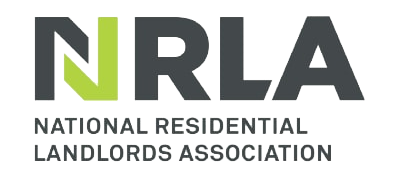Rent Arrears are a ticking time bomb…
20 May 2020Tenants who’ve lost their job to the lockdown have left their landlords in a pickle, causing them financial losses, delays and insecurity. However, when landlords work with their tenants, it appears to minimise these risks and to secure their income stream.
The Rent Arrears crisis ahead
Surely, landlords owed rent arrears have a right to them. If things get sour, they could press for eviction, go to court, and replace their tenants. Yet the current climate is not favourable for this, and the chances of success are dim, because:
- Tenants who can’t pay their rent due to the lockdown are unlikely to be able to also repay rent arrears afterwards;
- Court proceedings will take years to complete, thus delaying evictions and further increasing the likelihood of rent arrears;
- Finding new tenants with clean credit records after the lockdown will be harder than usual;
- Short-term lets may stagnate, leaving more properties available on the market and pushing rents downward;
- The above will significantly increase the void time between tenancies.
This looks grim, and rent arrears are bound to hinder both parties: tenants will be burdened financially for years and their credit records will be stained, whereas landlords stand to face hefty costs, uncertain outcomes over their claims, and income insecurity in the meantime. If landlords press hard onto already frail tenants, it will shatter them, and it will cripple the rental market with it, to the direct detriment of the landlord eventually. No one will benefit from this, and if we want to keep a healthy rental market in the long run, rent arrears are to be avoided at all costs.
Getting through the crisis together
At Rent Happily, we work with tenants and landlords facing hardship every day. For landlords on a mortgage, there is a fairly straightforward solution. For example, one of our tenants lost their job in March and couldn’t pay £1,200 rent anymore. The landlord obtained a three-month mortgage holiday of £700, and the tenant started paying £500 rent from April. This way, the landlord’s £500 income is covered, and the £700 mortgage break is given as rent relief because that cost is spread through the whole mortgage and will be repaid with future rents, as explained in this article. The landlord doesn’t lose out, and the tenant effectively pays the cost of the mortgage payment deferral via future rents.
When landlords don’t have a mortgage, they have to choose how to manage the losses. A landlord we work with decided to give the tenant a £400 relief from a £950 rent, so the tenant paid only £550 rent. True, the landlord is losing £400 for a few months, but the damage is minimized; some rent is coming in for the landlord, and the long term security is preserved for both tenant and landlord. In other words, tenants will lose some income, landlords will lose some rent, but it is down to the landlord to decide how much they will both lose and for how long.
The benefits of these cooperative strategies are obvious: landlords are assured of a stable -albeit temporarily reduced- income, which allows them to cover their costs with greater certainty in the midst of the crisis. By avoiding the lengthy route of eviction described above, they save thousands of pounds in court claims, unpaid rent arrears, agency fees, and empty property time. As for the tenants, they are committed to paying their reduced rent, because they know they can rely on their landlord when facing hardship.
Exploring other routes
The Labour proposition to extend the repayment of rent arrears over two years is a step in the right direction to alleviate the tenants’ burden. However, it is illogical and inappropriate when coupled with mortgage holidays, for landlords would end up getting that money twice, as stated in the referred article.
As for the tenants unions’ proposition to suspend rents and to cancel rent arrears altogether during the pandemic (also relayed by the New Economics Foundation), it means that the government would have to compensate the losses suffered by landlords, as they have a legal right to their rents. This would be a controversial move, reminiscent of the bailout of private banks in the last financial crisis: using taxpayers’ money to secure private profits, a debatable idea altogether. By avoiding rent arrears in the first place, this proposal would basically become irrelevant.
What to do, then?
Landlords have a choice to make: either to curtail their loss by working with the incumbent tenants, or to pursue rent arrears, evictions, loss of income, and increase their overall insecurity, to the detriment of all parties.
So far, Rent Happily has managed to avoid rent arrears altogether, and we are confident the landlords we work with will keep their tenants, will minimize their loss, and will see it through the crisis with little damage. Last but not least, the landlord-tenant relationship will be strengthened, for they are building a long-lasting rapport based on trust and commitment.











